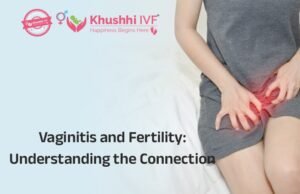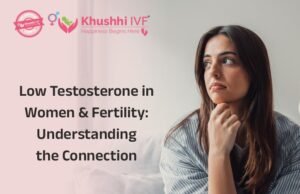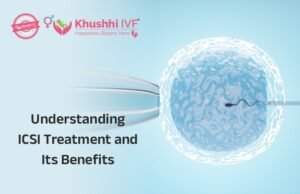Today, in this article we are going to discuss what is Intrauterine Insemination (IUI). Essentially, this is a non-tech treatment for infertility that improves the chances of pregnancy for couples. Intrauterine Insemination (IUI) is the process of inserting healthy sperm into the uterus of a woman to improve her chances of getting pregnant.
What is IUI (Intrauterine Insemination)?
A non-invasive, non-tech medical procedure that improves the chances of pregnancy in couples facing infertility issues. The method deals with inserting healthy sperm (from a partner or donor) into the uterus of the woman. Direct insemination reduces the distance between the sperm and egg, which travel through the fallopian tube, where they meet sperm and fertilize during ovulation. A fertilized egg then forms an embryo which implants itself into the lining of the uterus. This natural implantation results in pregnancy, which can be tested through kit or blood tests.
Additional Read
Step-by-Step Explanation of the IVF Treatment Procedure
Who should opt for IUI treatment?
It is beneficial for couples facing infertility due to reasons like low sperm count, increased maternal age, genetic disorders, lifestyle issues, and even unknown factors. Couples who are not getting pregnant even after a year or two of unprotected sex may be facing infertility issues. They can use IUI treatment to get pregnant.
It also works wonders for same-sex female couples where the woman can conceive through donor sperm.
It is also useful for single women who have an urge to become a biological mother.
How does IUI work?
Depending on the health of the patient, healthcare providers may take a different path. However, IUI treatment can be broadly categorized into three steps described as follows.
1. Ovulation
The healthcare provider needs to know the time of ovulation so that sperm is injected at that time. This improves the chances of fertilization.
Ovulation can be checked through at-home kits or blood tests for the presence of luteinizing hormone (LH). The use of transvaginal ultrasound for checking the presence of mature eggs is another common method. Some patients are given fertility medications or hormonal injections called human Chorionic Gonadotropin (hCG) to ensure ovulation of one or more eggs. Normally, ovulation time is around 10 to 16 days from the first day of the period. Insemination is possible within 24 to 36 hours of detection of LH in the blood or urine.
2. Semen sample preparation
Sperm is made available by the partner or donor, as per the case. At times, the sperm is provided earlier and kept frozen by the healthcare expert. It is then thawed before the actual process of insemination.
Healthy sperm is taken by making the entire sample go through a process called sperm washing. In this, the sample is centrifuged repeatedly to separate seminal fluid and wash away weak sperms, debris, bacteria, dead sperms, etc. What remains is healthy sperm with higher potency and more capacity to reach the fallopian tube, where it meets the egg and may fertilize it.
Sperm washing is an important step as it helps couples deal with unknown infertility issues and immunity system disorders.
3. Insemination
The simple process takes just a few minutes and is normally painless. In this, a speculum is inserted into the vagina and then a catheter is inserted into the uterus through the cervix. Healthy sperm is injected into the uterus through this catheter.
The patient may be asked to lie down for some time of 10 to 30 minutes post-insemination. In some cases, progesterone hormone is given to the patient to improve the thickness of the uterus lining. A healthy uterus lining improves the chances of fertilization and pregnancy.
A pregnancy test can be taken after two weeks of IUI to check its success. You can also be in touch with your healthcare provider for detailed steps, which may vary from case to case.
What can I expect during IUI?
Some common symptoms post-IUI are mild cramps and spotting for one or two days. You can do normal activities immediately after it unless you feel any kind of discomfort. Discussing your condition and symptoms with the healthcare provider is advisable. Generally, there are no restrictions, still, it’s important to check with a medical expert.
Risks associated with IUI
Although it is a low-risk treatment, there are a few observations as explained below:
- Spotting – Little bit of vaginal bleeding is possible.
- Infection – There are chances of infection, but they are quite rare.
- Multiple births – People taking fertility medications may release more than one egg. In some cases, sperm may fertilize more than one egg resulting in the birth of twins, triplets, or more. It may raise concern for the health of the mother and even premature birth of babies.
- Ovarian Hyperstimulation Syndrome (OHSS) – Here, the ovaries become swollen resulting in pain. This is a side effect of an overdose of fertility medications. However, the chances of OHSS are quite rare.
- Mild side effects – Some of the IUI treatment side effects are, cramping and spots are often observed post-insemination. It can also take a toll on mental health so, it is better to discuss everything with the healthcare expert and be mentally prepared for the procedure.
The success rate of IUI
The efficacy of IUI is the same as normal conception, which is a 20% success rate. This result is observed in cases where are administered fertility medications. There are chances where fertility experts do not recommend fertility drugs. All of that depends on the reasons for infertility, the age of the parents, genetic issues, etc.
Conclusion
IUI treatment is simpler than other advanced procedures like IVF. It is also a cheaper and uncomplicated process that gives good results. Couples dealing with infertility must consider IUI before plunging into complex treatments like IVF. It also saves them from unwelcome side effects and mental trauma. IUI is the easiest way to artificially become pregnant with the least side effects.
Khushhi IVF is a leading clinic that offers IUI treatment in Ahmedabad to its patients. Feel free to connect with our team to discuss your case in detail.





